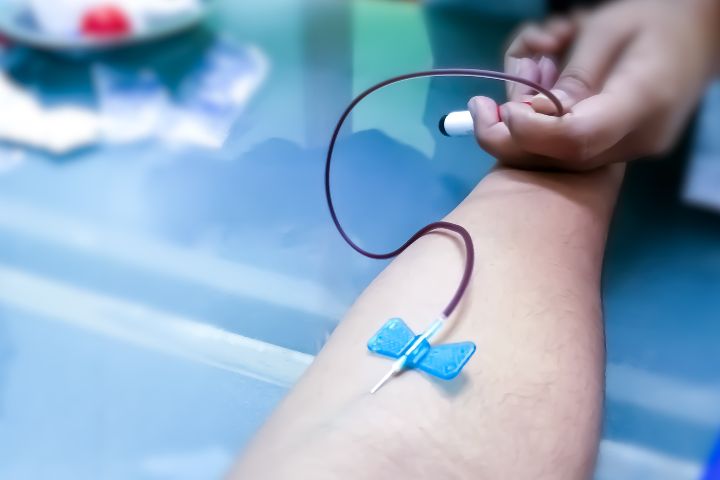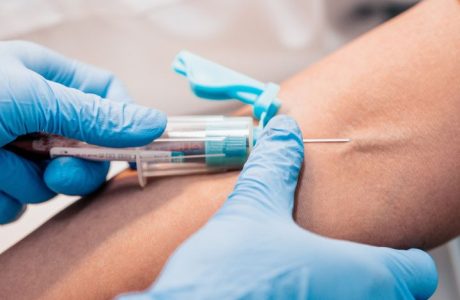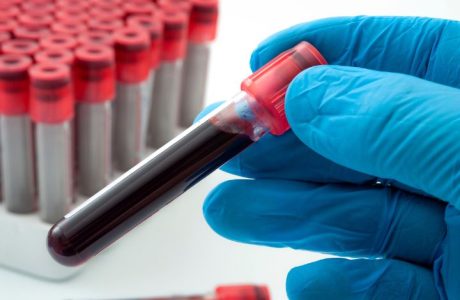Chances are you’re here because you’re curious about the perks of becoming a certified phlebotomist. Like every profession, there are elements of their job that people love and some aspects that some may think aren’t so great. However, to help you answer if this is the career for you, we’re about to look at some of the pros and cons of being a phlebotomist.
Phlebotomists are vital members of most medical healthcare teams. They are primarily responsible for obtaining blood samples for diagnostic testing, blood transfusions and donations, or medical research.
As a phlebotomist, your role is pivotal in contributing to the speed and precision of a patient’s diagnosis, in addition you will also provide comfort to the patients as well. These facts alone might answer the question, ‘Is being a phlebotomist worth it?’. Nevertheless, if you want to look further into this healthcare vocation before exploring training options, keep reading as we explore more facts about being a phlebotomist to help you decide.
Learn about Training Direct’s phlebotomy program!
What are some benefits of being a phlebotomist?
Having a career in the healthcare industry is a reward in itself. Ultimately, you’re dedicating your career to helping people, often when they need it most. While this tops the list of positives when considering the pros and cons of being a phlebotomist… we’re going to dive deeper into the facts about being a phlebotomist for you.
Here are four key advantages of studying to become a phlebotomist:
1. Shorter training schedule
For any aspiring healthcare professional, the opportunity to swap your current career quickly for a healthcare occupation such as a phlebotomist is high on the list of positives. In fact, you can train through a certified Phlebotomy Technician program typically in 4 weeks.
Not bad when you think with just a month’s schooling, you could soon be challenging your certification exam and pursue entry-level phlebotomy jobs across the medical sector.
2. High demand in employment and job stability
Of course, graduating from a vocational training program and becoming a certified phlebotomist is an exhilarating feeling. Yet another incredible perk of the job when exploring the pros and cons of being a phlebotomist is the strong career outlook of the profession after qualifying.
That’s because, according to the U.S. Bureau of Labor Statistics (BLS), the employment of phlebotomists is projected to grow a remarkable 8% from 2022 and 2032, which is faster than average for all occupations. 1
3. Job workplace variety
If you like taking control of your career… then becoming a blood technician or phlebotomy technician will rank highly on your list of pros. Why? Because there are so many potential workplace and medical settings where you can find employment.
This is because being a certified phlebotomist, you could soon find work employed in a:
- Hospital inpatient, outpatient, or Emergency Room (ER) department
- Private healthcare clinic
- Diagnostic laboratory or research facility
- Nursing home or long-term care institution
4. Exciting career advancement
Our final incentive on our shortlist of the pros and cons of being a phlebotomist has to be the potential career progression available to you. Often, becoming a phlebotomist is just the first step towards advancing into the medical sector as a qualified health worker.
Due to this, phlebotomists gain valuable exposure to medical terminology, equipment, and procedures on the job. As a result, many phlebotomists utilize this accumulated experience, combined with continued education, to go on to qualify and pursue a career as:
- Licensed Practical Nurses (LPNs) and Registered Nurses (RNs)
- Medical Assistants
- Medical Laboratory Assistants, Technicians and Lab Managers
- Research Phlebotomists
- Venipuncture Instructors & Educators
Some cons of being a phlebotomist
While there seems to be an endless list of positives, you might still be wondering, ‘Is being a phlebotomist hard?’ Well, like most vocations, every job has some downsides, so let’s explore the challenges you might face when considering the pros and cons of being a phlebotomist.
1. It can be physically demanding
Similar to most healthcare professions, being a phlebotomist means you’re on your feet for most of your shift. Whether it’s a steady rotation between patients in an outpatient facility or rushing to the next emergency in the ER.
While this can be challenging, it also has its benefits, as every day is different, it can keep you active, and it can make your shifts fly by.
2. Interacting with patients who are nervous about drawing blood
It’s safe to say that nobody would choose to visit a hospital unless they have to, right? As a result, as a phlebotomist, you will occasionally have to take blood samples and specimens from nervous patients or those afraid of needles.
It can be considered a potentially negative aspect on the shortlist of pros and cons of being a phlebotomist. Nevertheless, it provides a fantastic opportunity to offer you a personally enriching experience. For instance, using your communication skills and empathetic attributes, you can reassure patients about the procedure, which can be intensely satisfying once the blood sample has been taken successfully.
Is being a phlebotomist worth it?
Now we’ve looked at the pros and cons of being a phlebotomist; we hope it’s provided a clearer picture of the career and if a phlebotomist career could be for you. And while the more favorable benefits of the profession are impressive, even the cons of being a phlebotomist can be turned into positive outcomes.
So, if you’re looking for a fast-track pathway into working in the healthcare sector, with a strong career outlook and a variety of workplaces to choose from… then kickstart your career by enrolling in a phlebotomy technician program.
Learn how to get started on the road to being a phlebotomist today!
Understanding the facts about being a phlebotomist is essential to determine if it aligns with your career goals and aspirations. Identifying the pros and cons of being a phlebotomist highlights both aspects of the rewards and the challenges you can expect once you’ve passed your exam and become certified.
You could be just four easy steps away from launching your dream career as a phlebotomist. Training Directs phlebotomy technician program has been created and designed to prepare you for success. Once you complete your training, you’ll be eligible to challenge a certification exam, and then pursue your new career.
Start your healthcare career today by enrolling in Training Direct’s Phlebotomy Training Program, available at our Connecticut campus locations in Bridgeport and Danbury.
Sources:
Bureau of Labor Statistics, U.S. Department of Labor, Occupational Outlook Handbook, Phlebotomists, at https://www.bls.gov/ooh/healthcare/phlebotomists.htm#tab-6 (visited October 25th, 2023)





